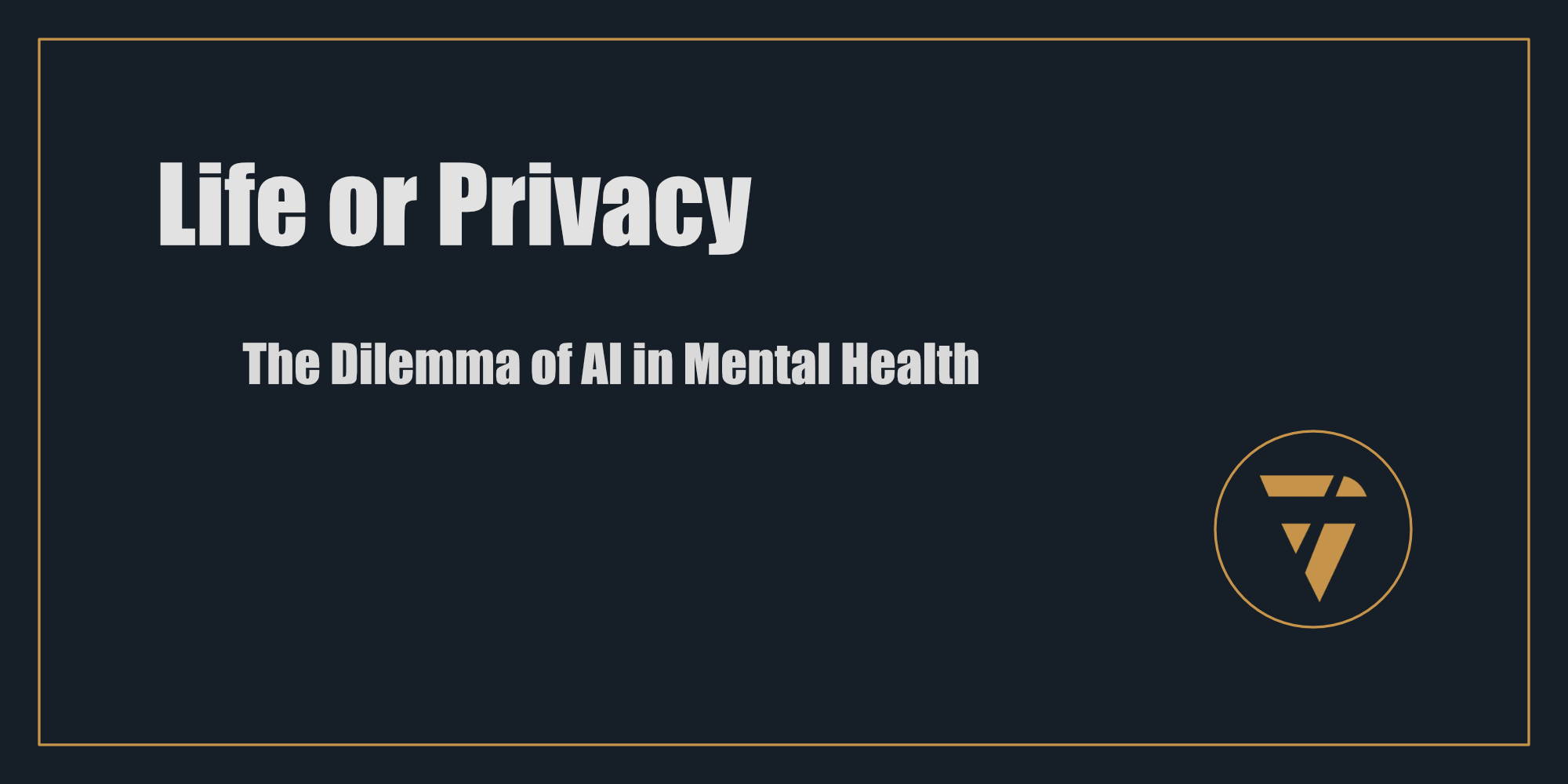Life or Privacy
The Dilemma of AI in Mental Health

The Ethical Dilemma of AI and Suicide Prevention.
Where Do We Draw the Line?
What if the very technology designed to save lives also risked undermining our most cherished freedoms?
Imagine an algorithm so sophisticated that it can detect when someone is at risk of suicide based on subtle patterns in their social media activity, wearable device data, or search history. A lifesaving alert is sent, intervention occurs, and a life is saved. On the surface, this seems like an unequivocal good. But beneath the success lies a profound ethical question: Should we allow AI to override personal privacy to intervene?
The intersection of mental health, artificial intelligence, and privacy presents one of the most complex moral debates of our time.
The Promise of AI in Suicide Prevention
AI offers the potential to revolutionize mental health intervention. By analysing vast datasets, it can identify risks invisible to human observers. Subtle changes in language tone, posting frequency, or sleep data from smartwatches can all signal distress. Early pilots of AI-driven mental health tools show promising results: individuals identified as high-risk have received timely interventions that saved lives.
Yet this transformative capability comes with a cost: access to intimate, deeply personal data. The very systems that enable intervention also demand unprecedented access to our private lives.
The Tension Between Privacy and Protection
Privacy is a fundamental human right, enshrined in global treaties and upheld by laws worldwide. It is the barrier that allows us to define the boundaries of our personal lives, free from intrusion. But when privacy stands in the way of saving a life, should it still hold primacy?
Critics argue that without explicit consent, AI systems monitoring behaviour become invasive, akin to an all-seeing digital panopticon. Supporters counter that in life-or-death scenarios, intervention is a moral obligation. The key tension lies in this: where does intervention end and surveillance begin?
Opt-In Models: A Possible Middle Ground?
One potential solution is to make these AI systems voluntary—allowing individuals to opt in and grant access to their data in exchange for the promise of help in times of crisis. This model respects autonomy while still leveraging the power of AI to intervene when needed.
However, this approach raises further questions. Could vulnerable individuals feel coerced into participation? Would a lack of universal adoption create gaps in effectiveness, leaving those most in need out of reach?
Bias, Equity, and AI’s Limitations
AI systems are only as unbiased as the data used to train them. If the datasets lack diversity, AI risks disproportionately failing at-risk groups, such as marginalized communities. Additionally, over-reliance on AI could create a dangerous precedent where the responsibility for mental health intervention shifts away from human relationships and onto machines.
This doesn’t mean the technology should be abandoned, but it highlights the need for cautious and equitable implementation.
The Call to Thoughtful Action
As AI continues to evolve, we have an opportunity to shape its role in suicide prevention thoughtfully. Policymakers, tech developers, and mental health professionals must collaborate to create systems that prioritize consent, transparency, and fairness.
The goal should not merely be to save lives but to do so in a way that respects the dignity and autonomy of those being helped.
What Would You Choose?
Would you grant an AI access to your private data if it could save your life? Or would you prefer to preserve your privacy, even at the risk of being unseen in a moment of crisis?
This is not a rhetorical question. It’s a decision we, as a society, must make—one that will define the balance between technology’s promise and the preservation of our humanity.
Let’s discuss: What do you believe is the right balance between privacy and intervention? Share your thoughts.
Stay informed about the ethical challenges shaping our future. Subscribe to explore the intersections of technology, business, and humanity.
Need help navigating ethical questions in your business?
Share this post with someone who’d find it thought-provoking.
This is what I’m working on. Tell me what you think, I enjoy the conversation! Subscribe and follow the work in real time.
Thanks!
B
When does saving a life justify invading privacy? AI can detect suicide risks before it’s too late, but at what cost to autonomy? In mental health, the line between intervention and intrusion is razor-thin. How far should technology go to protect us?
PS -





